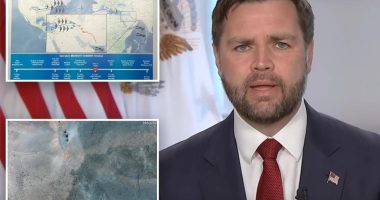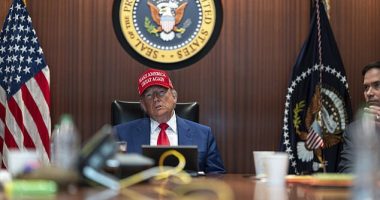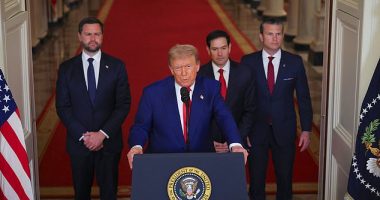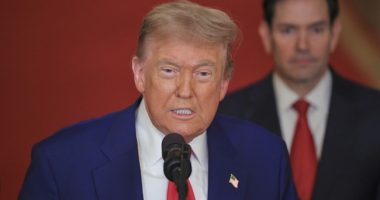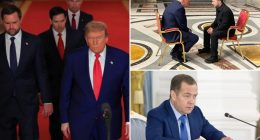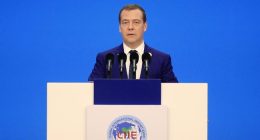The Australian government’s world-first plan to ban children from social media has caught the attention of Elon Musk, who claims it could lead to wider restrictions.
Prime Minister Anthony Albanese announced on Thursday the introduction of his bill, which would require Australians to be over 16 to use many popular apps, including Snapchat, TikTok, Instagram and X, which Musk owns.
‘Seems like a backdoor way to control access to the Internet by all Australians,’ Musk replied after Albanese boasted about the law on social media.
Musk, who recently earned the nickname ‘First Buddy’ due to his friendship with US President-elect Donald Trump, has long been an advocate of free speech, which is one of the reasons he claimed he bought X, then called Twitter, in 2022.
Greens senator David Shoebridge, in a Senate Committee hearing earlier this month, questioned whether the ban could only be enforced by requiring age verification of all Australians who used social media.
Deputy secretary of communications and media at the Department of Infrastructure, Transport, Regional Development, Communications and the Arts, James Chisolm, replied ‘yes’.
The government has since said part of the proposed legislation would prevent tech companies from keeping information gathered during the verification process.
Companies that systematically fail to enforce the ban could be slapped with fines of up to $50million under the legislation being debated in Parliament.

Tech billionaire Elon Musk has hit out at Australia’s proposed social media ban for kids

Musk said the ban could lead to wider restrictions for Australians
Communications Minister Michelle Rowland told Parliament said the ban would dramatically reshape Australian society’s relationship with social media.
‘This bill seeks to set a new normative value in society that accessing social media is not the defining feature of growing up in Australia,’ she said.
‘There is wide acknowledgement that something must be done in the immediate term to help prevent young teens and children from being exposed to streams of unfiltered content,’ she added.
While there is bipartisan political support to pass the proposed ban for teenagers, there is debate over whether it will actually curb the harm of social media.
The details around the ban could change before the legislation passes Parliament.
Platforms would then have one year to implement a process to enforce it.
Messenger Kids, WhatsApp, Kids Helpline, Google Classroom and YouTube are expected to be classified as ‘out-of-scope services’.

Prime Minister Anthony Albanese said it was a matter of urgency that the ban be introduced
Opposition communications spokesman David Coleman said the social media companies had ‘abrogated their responsibility to care about Australian children’ for too long.
‘We look forward to working constructively on this legislation with a view to seeing it passed through the parliament next week,’ he said.
The office of the eSafety Commissioner said age assurance was important but had to be part of a broader approach.
‘We must also continue working to ensure online services are safe by design and to build children’s digital literacy, resilience and critical reasoning skills so that when they are of age to use these services … they are equipped for the online world,’ it said.
The Australian Human Rights Commission said while the ban was designed to protect children from harm, it would likely have negative human rights impacts on young people.


